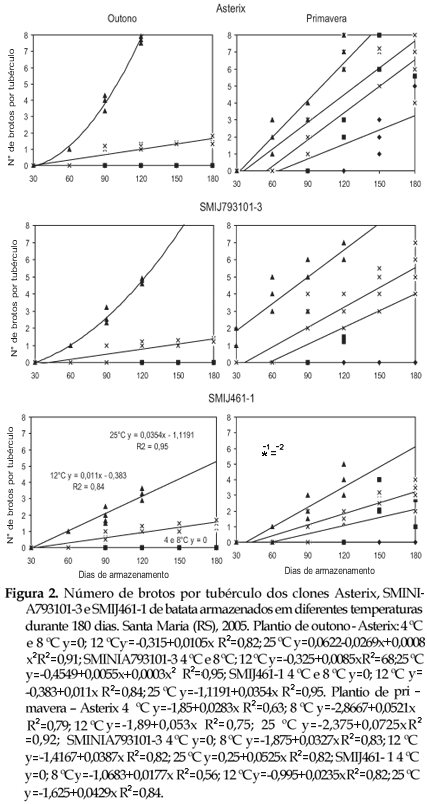Adequate tuber storage is necessary to maintain a good availability of potato tubers in the market and to get seeds with adequate physiological age at planting. The objective of this work was to determine the effect of different storage temperatures on tuber physiological aging of three potato clones produced during fall and spring growing seasons. The experiment was carried out as factorial of three clones (Asterix, SMIJ461-1 and SMINIA793101-3) by four storage temperatures (4, 8, 12 and 25 ºC) and two growing seasons (fall and spring) in a random design with four replications. At 30-day intervals, tubers were evaluated from the beginning to 180 days of storage. Cold storage increased dormancy period, reduced sprout number and kept health tubers. Tubers produced during fall season did not sprout at the storage temperatures of 4 and 8 ºC. Tuber fresh weight loss and respiration increased with storage period and temperature. Crop growing season changes tuber physiological aging during storage. Storage in low temperature (4 and 8 ºC) conditions is efficient to slow down tuber aging.
Solanum tuberosum L.; storage temperature; postharvest losses; respiration; seed potato





